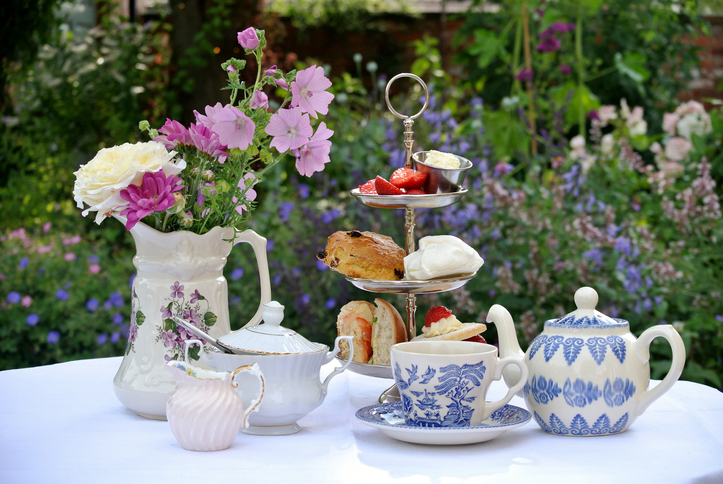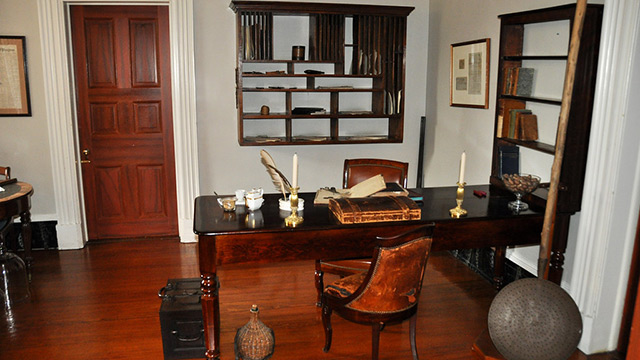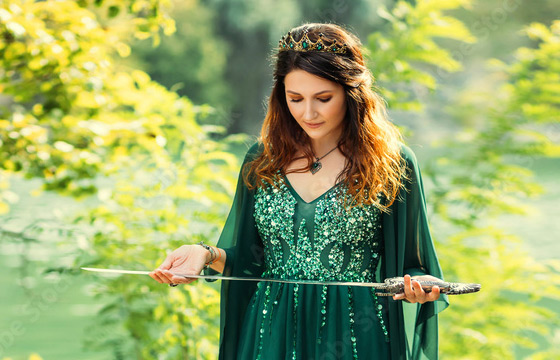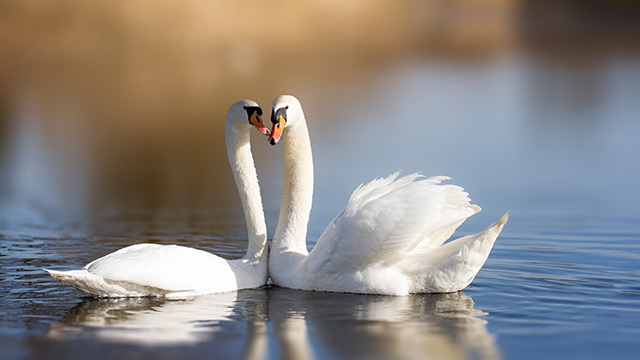Port Jackson, Australia, 1796
Robert hitched himself over the fence before the soldiers turned the corner, and landed clumsily on all fours in someone’s shrubbery. He froze, crouching within the shadow of a stocky, low-spreading banksia, head down, his lungs protesting mightily and heard the shouts as His Britannic Majesty’s human hounds came baying.
The small cough did not alert him at first. Rather, he noticed small feet within a kicking distance of his face. Inside one of the silken slippers, a tiny toe wriggled as if in thought. So all was lost!
Beyond words, Robert despairingly raised his face to know the little magistrate’s verdict and watched, incredulous, as the child lifted a finger to her lips and pointed. Shifting, he glimpsed a rope ladder and above it a treehouse set amiably some twelve feet up, across two sturdy branches of a paperbark. Without another thought, he hurled himself across the space, grabbed the ladder and sprung up it.
The playhouse’s door was narrow, the roof low. He crawled in and then cursed his impulsive nature. D—n it, he was caught now, like a brainless leg of mutton in a meat safe. The child only had to shriek for her nursemaid and he would be snared, flogged and sent in irons to the hell of Norfolk Island.
Crammed Gulliver-like between a doll’s high chair and a gingham-covered table set with tiny porcelain cups, he trembled in the intense heat but there was no wail from below. The cicadas resumed their chorus and, humming, his little hostess reached the platform and gravely anchored in the ladder.
‘Do you entertain often?’ he asked absurdly as she joined him.
The child couldn’t be more than seven. Ringlets bunched with blue velvet bows shook in silent laughter as she knelt opposite and lifted a Lilliputian teapot with the grace of a governor’s lady. The buttonhole mouth unravelled into a glorious smile.
‘Will you take tea, sir?’
The girl’s kindness almost devastated Robert. His thumb and finger rattled the tiny cup so much as he lifted the saucer that he set it down again abruptly, nudging it across the cloth instead, close to unmanly tears as he watched the water from the neat spout fill the cup.
Out in the lane, the sergeant bellowed, ‘D—n his eyes! The scoundrel can’t be far.’
Robert accepted the tepid mouthful gratefully. God’s Truth, he could have drunk the Tank Stream dry, for the merciless February sun was nowhere near the yardarm and he had just run a quarter mile from the farm.
Young eyes, grey as Scottish weather, smiled across at him. The teapot waited, poised to pour him a second cup.
‘They’ll search the garden,’ she stated softly, glancing out through the treehouse’s only window. It faced her home. To close the hooked back shutters in this heat would rouse suspicion. ‘I suppose I should introduce myself since I have invited you for tea. Caroline Kent.’
Captain Kent’s daughter? he wondered. Amused, he took the solemnly proffered hand and gallantly raised it to his lips. ‘Your humble servant, Miss Kent. Robert Berwick at your service.’
‘Caro,’ she corrected. ‘You are not wearing irons, Mr Berwick? Why are they after you?’ She ignored the voices coming from the house.
‘I’m a political prisoner not a thief or a murderer.’ He edged back as far as he could from the window.
‘Of course not! One can always tell,’ she whispered. ‘Mama says that ‘Manners maketh man’.’
‘Caroline! Caroline!’
‘Hush, they’re coming. Now you must be quiet.’ Grabbing her doll, the child blocked the window space with her body and brandished the teapot. ‘Isabella and I are having tea, Mama.’
‘Oh, Caroline.’ Relief laced a lady’s voice. ‘Darling, this is Sergeant Russell. He’s looking for an escaped prisoner? Have you seen any strangers?’
‘Isabella is very hungry, aren’t you, Isabella?’ The doll waggled.
‘A young man, Miss Caroline.’ The sergeant’s tone sweetened hopefully. ‘Dark hair, brown breeches, tallish.’
Behind Caro, Robert, his limbs growing more cramped by the instant, held his breath. A bushfly crawled upon his lower lip, lured by the moisture.
‘Did you seen any stranger, Isabella?’ Caro asked and then her childish voice pitched higher. ‘No, I haven’t seen anyone.’ The doll jiggled from side to side. Don’t overdo it, little one!
‘Are you certain no one came over the fence, miss?’ persisted the sergeant.
‘Dearest, you must tell the sergeant the truth if you did see anyone.’
‘I heard some feet and then lots. They all went that way.’
‘House is clear, sir,’ shouted another voice.
‘Search the grounds,’ bawled the sergeant, and stated as a courtesy: ‘With your permission, ma’am? Over there, lads! Check the bushes.’
Had he broken any stems? God in Heaven, Robert almost wished his fellow convict, Thomas Muir, had not held out the lure of freedom to him. Governor Hunter would slap another two years on his fourteen year sentence for this.
‘I wish you would come down, sweetheart, and into the house. The convict may still be lurking.’
‘We are quite safe, Mama. I shall keep the ladder up.’
‘But it is so hot out here, dearest.’
‘Oh, but we can watch the soldiers better from here. Isn’t it exciting, Isabella?’
Caro’s mother must have wearied of craning her neck for no more was said and the child stayed in her watchtower. Robert’s heart pounded, if Russell demanded the ladder to be dropped. The child’s small hand slunk back in, forefinger gesturing to the floor. The bastard must be standing beneath them listening.
Blinding sweat trickled from Robert’s brow, and time crawled on its hands and knees as more heavy feet bruised the grass below them and stamped off irritably down the gravel path. It would be just like Russell to set a redcoat to watch from the shadows but in this temperature might the alehouse beckon? Tom Muir should be at the Otter’s longboat by now. God willing, he would tell the Americans to pull off. One of them had to make it to freedom and Tom, clever, eloquent, deserved that chance.
‘They have all gone back to the house,’ whispered Caro at last, wriggling backwards and studying Robert’s demeanour as if estimating his chance of staying uncaught.
‘I owe you a great debt, Caro. You’re a canny lass.’
‘‘Canny’? I don’t know what that means or ‘poli-whatever’.’
‘I’m a Scot. Canny means clever. ‘Political’, well, that’s a harder one. Have you heard of parliament and elections?’ The heart-shaped face looked doubtful. What were the Rights of Man or Trees of Liberty to her? ‘I believe in everyone having the right to vote, lass.’ Sedition, the judge had called it. Fourteen years for sedition!
‘Me as well?’ But it was definitely beyond her precocious understanding.
‘You, lass?’ Robert swallowed. ‘If I was God, I’d make you the Queen of England.’
Weymouth, Dorset, England, 1815
CARO drew rein on the ridgetop where the ancient wood halted and the ploughed fields began. Always she stopped here, loving the wild unembellished hills to east and west and the sea rolled out before her before her like a vast canvas of light and colour. A merchant vessel, snowy sails full-breasted, was swanning coastward, bound for the river mouth and a harbourage at Weymouth or maybe it would join the flock of ships already clustered in the lee of Portland.
Sadly, Caro turned her horse’s head back towards the town. She could no longer afford this pleasure. Now her horse must be sold too to meet her husband’s debtors. Already she had given Phoebe, her maidservant, notice, and within a week she would relinquish the house on the esplanade for some shabby backstreet rooms.
It was hard to keep her head high above despair. Even the wind hurling a nuisance of withered leaves at her heels as she stepped through her front door reminded her of the misery of winter stretching ahead. Then she saw the small card with one corner turned down waiting on the hall tray.
‘Oh, ma’am. I never saw such polish on a gentleman’s boots,’ Phoebe told her breathlessly.
Such news would need to last a year. No one else called on Caro now. Word of her husband’s suicide had eddied down from London through the tributaries of gossip and there were no more invitations. ‘Poor Mrs Lancaster’ had become the common term of reference over the genteel card tables.
The name on the card was unfamiliar. French-sounding. Laurence Charlon.
‘The gentleman is putting up at the Black Dog in St Mary’s Street and will call again at three tomorrow.’
And call he did. She was expecting a younger man, someone her late husband’s age, not the stylish man with silvering hair who followed Phoebe in.
‘Mrs Caroline Lancaster?’
She inclined her head graciously. The stranger waited for her to be seated and tossing his coat tails back sat down upon the chair opposite. ‘I have come from London, Mrs Lancaster. You are a difficult lady to find.’
‘I suppose you are a friend of my late husband’s,’ she remarked dryly. It was amazing the circling round that her husband’s debtors had performed in London before they swooped.
‘Indeed, no, ma’am, although I did learn of his unfortunate demise.’ Definitely a debt collector!
‘Forgive me for asking, sir, but I cannot place your accent.’
‘My drawl, you mean, ma’am? Guess you would call it Philidalphian though my home is in Columbia now. And I spent some years in Paris before that.’
‘And now you find yourself in Weymouth.’ The irony in her voice was not lost upon him.
‘Indeed, ma’am.’ The blue eyes missed nothing–the lack of ornaments on the mantleshelf, the worn hem of her mourning gown. ‘I am not here for payment.’
Absurdly, she wanted to believe that his perceptive smile was honest.
‘In that case, may I offer you some tea, sir?’
‘I was hoping you would, ma’am.’ He was observing her with a Robinson Crusoe fascination as she rose and tugged the bellrope.
‘The truth is that I am here for a friend who cannot perform the errand for himself. Mr Robert Berwick. Does the name mean anything to you, ma’am?’
‘Yes,’ she answered carefully. ‘We once took tea together. I was seven.’
‘My friend did not tell me that.’ He recovered his astonishment. ‘That you were as young as that. I understand you rendered him some assistance at Botany Bay?’
Caro shook her head modestly. ‘It was a very brief acquaintance.’
‘Unhappily, Mr Berwick passed away last year but before he died he begged me that if ever I came to England I would seek you out, ma’am. It has not been an easy commission I might tell you.’
‘He escaped?’ An hour earlier she would have sworn she had no tears left, but they rose now to choke her. Tears for the past. For Mama and Papa, and for the joy to discover after all these years that Mr Berwick had reached America and freedom. And for what might have been, a happy correspondence had she known he was alive.
‘My dear lady, I am sorry to have upset you.’
‘No, no,’ she whispered. ‘My-my nurse told me that he had been hanged and I was to think no more on him. All these years. And now it is too late. I cannot write to him. Did he prosper? Oh, I hope he found much happiness in America.’
‘Yes, ma’am, and he left you a bequest. Two thousand pounds! You do not answer, Mrs Lancaster. I understand that your husband left huge debts.’ So he had already heard the tittle-tattle. ‘I trust this will see an end to your difficulties.’
‘No,’ she said slowly. ‘I cannot accept. That would not be right, sir. My husband was a fool, led into gambling by unkind friends. I should not want Mr Berwick’s hard-earned money to end in their pockets. Please tell Mr Berwick’s solicitors to distribute the money among his wife and children or some charity—orphans of gamblers perhaps.’
‘Your feelings do you credit, ma’am. Then we shall say no more on the matter.’
‘AND what happened to Muir, the man Mr Berwick escaped with?’ Caro asked two days later as she strolled eastward with the American along the curve of beach.
‘He was accorded a hero’s welcome in Paris but they soon forgot about him and he died in penury.’ Laurence Chalon’s eyes narrowed at the distant image of old King George that the local people had created on the chalk hillside.
‘Oh, how tragic,’ murmured Caro, ‘and after all those misadventures. And was Mr Berwick with him then?’
‘He was still in France at the time but in the south. It’s my understanding that he left for America in 1802 during the peace of Amiens and never returned to Europe.’
She nodded. ‘I suppose it would have been too dangerous for him to return to England?’
‘I fear so.’
They walked on in companionable silence to where the town dwindled beyond the shingle to a few scattered cottages skirting the brackish moor, and then they turned about to face the rain clouds louring from the west.
Caro had begun to enjoy Laurence Chalon’s company too much, to appreciate the hand beneath her elbow on the steps, the conversation of a man who had glimpsed Red Indian encampments, and who could comment on Emperor Bonaparte’s antics with humour rather than partisan loathing.
‘We shall be most dull when you are gone, sir,’ she lamented as the wet weather drove in, and they returned to her house.
‘That is something we must discuss, Mrs Lancaster. You cannot fail to observe that in the few days since I arrived, we have struck up a most excellent friendship.’ He carried her hand to his lips. ‘You exchanged one shire for another. Have you ever considered leaving these shores?’
‘For somewhere like America or Australia? Had I the means, maybe.’
‘Two thousand pounds.’
She swept before him into the drawing room and turned laughing. ‘No, I pray you, stop rattling Mr Berwick’s money at me. I will not change my mind on that.’
‘What would change your mind, ma’am?’
‘If—I had the chance to see Mr Berwick again.’
The air was quiet between them and then he said: ‘When did you guess, Caro?’
‘Oh,’ she paced away and swung round. ‘Only a second ago. The way you kissed my hand. Why, you unkind creature, you let me sit and weep tears over you and you were still alive and—what happened to the Scots accent?’
‘Carefully erased. You remembered that?’
‘I’m a canny lass, remember. And I even have Isabella still.’ She lifted her hand, wanting to touch his face. ‘So sad and worse for wear.’
‘I think not,’ he answered, knowing it was of herself she spoke, and taking her hand, lifted it to his cheek. ‘My dear Caro, would you settle for Mrs Berwick instead of Queen of England, do you think?’
And in answer, she wound her arms about his neck and kissed him soundly.
‘You shall not escape a second time, ‘ she vowed.
Copyright Isolde Martyn




